Types of Dementia
Dementia is not a disease in itself but it describes the signs and symptoms that are present due to damage or injury to the brain
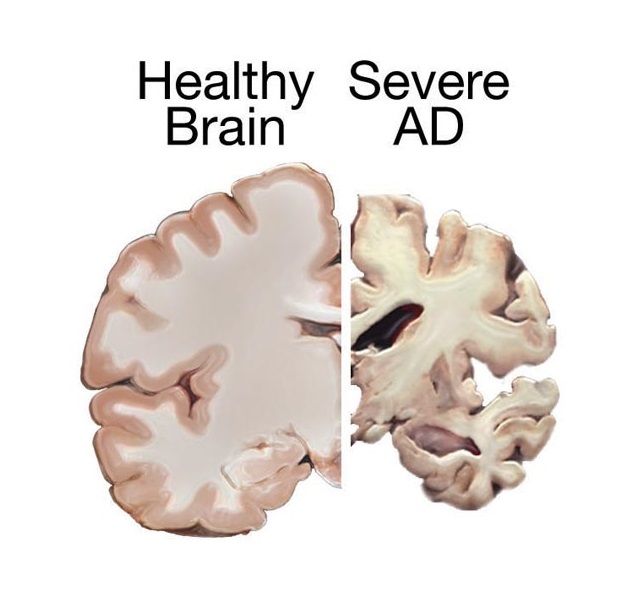
Alzheimer’s Disease
Alzheimer’s disease is the most common cause of dementia. Current thinking is that it's possible that changes in the brain may begin a decade or more before memory and other cognitive problems appear. During this preclinical stage of Alzheimer’s disease, although people seem to be symptom-free, toxic changes are taking place in the brain. In Alzheimer’s disease, an abnormal protein surrounds brain cells and another protein damages their internal structure (abnormal deposits of proteins form amyloid plaques and tau tangles throughout the brain). After a period of time, chemical connections between brain cells are lost and cells begin to die. Neurons stop functioning, lose connections with other neurons, and die.
The damage initially appears to take place in the parts of the brain which are essential in forming memories. Problems with day-to-day memory are often the first thing to be noticed, but other symptoms may include difficulties finding the right words, solving problems, making decisions, or perceiving things in three dimensions.
As more neurons die, additional parts of the brain are affected and begin to shrink. By the final stage of Alzheimer’s disease, damage is widespread, and brain tissue has shrunk significantly.
Common Symptoms
- Short term memory loss
- Struggling to find words
- Regularly misplacing items
- Losing track of time
- Changes in mood and behaviour
- Difficulty in finding the way, even in familiar places
Vascular Dementia
Vascular dementia is the second most common type of dementia caused by reduced blood flow to the brain. It is estimated that it affects around 150,000 people in the UK. When the oxygen supply to the brain is reduced because of narrowing or blockage of blood vessels, some brain cells become damaged or die. The symptoms can occur suddenly as a result of one large stroke. They can also develop over time, because of a series of small strokes. The symptoms of vascular dementia vary and may overlap with those of Alzheimer’s disease. Many people have difficulties with problem-solving or planning, thinking quickly and concentrating. They may also have short periods when they get very confused
Vascular dementia tends to get worse over time, although it is sometimes possible to slow it down by making healthy lifestyle choices e.g. stopping smoking, exercising regularly and treating health conditions.
Factors in developing Vascular Dementia
- High blood pressure
- Smoking
- Unhealthy diet
- High blood cholesterol
- Lack of exercise
- Being very overweight or obese (BMI over 30)
- Diabetes
- Drinking too much alcohol (more than 21 units a week)
- Atrial fibrillation and other types of heart disease

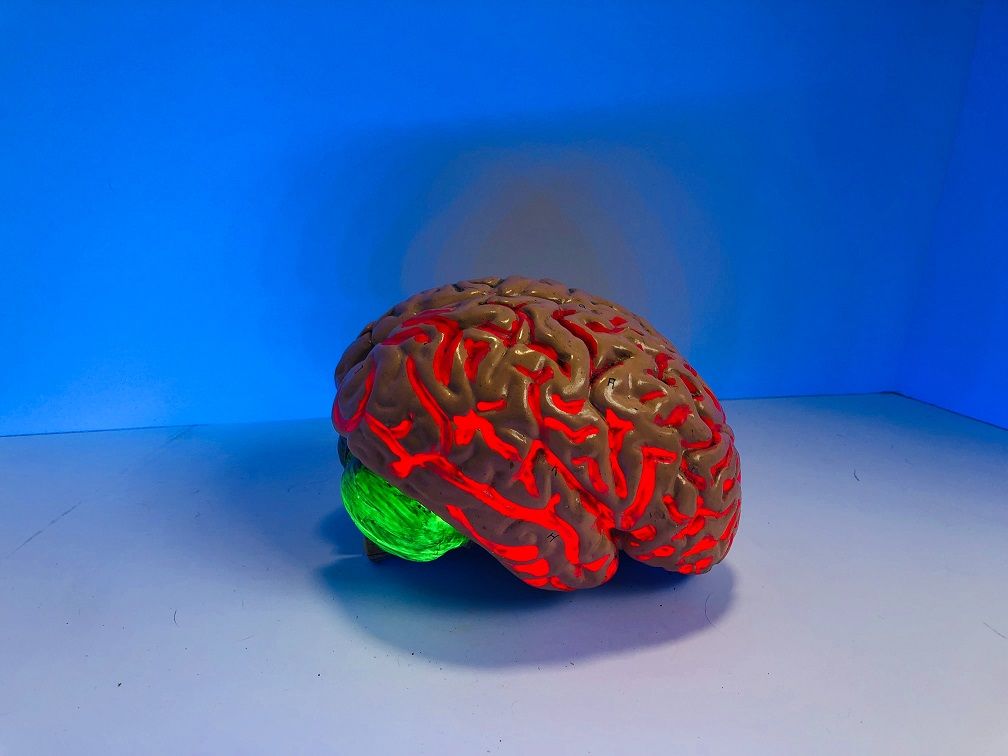
Common Symptoms
- Difficulty concentrating and communicating
- Memory problems
- Depression
Dementia with Lewy bodies
Dementia with Lewy bodies involves tiny abnormal structures (Lewy bodies) forming inside brain cells. Lewy bodies are clumps of faulty proteins that build up in the brain cells of people who have Parkinson’s disease or dementia with Lewy bodies. They disrupt the chemistry of the brain, leading to the death of brain cells. Lewy body disease affects different parts of the brain that control body movement and processing of sensory information. People with Lewy body disease often have very disturbed sleep and visual hallucinations. They may also experience rapid ‘fluctuations’ in their ability to function properly, feeling confused or disorientated quite suddenly. Day-to-day memory is usually affected less than in the early stages of Alzheimer’s disease. Dementia with Lewy bodies is closely related to Parkinson’s disease and often has some of the same symptoms, including difficulty with movement
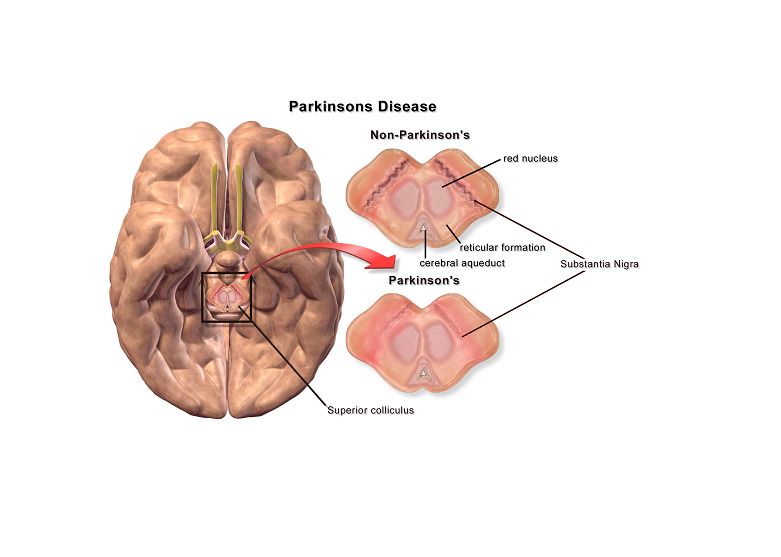
Common Symptoms
- Muscle Stiffness
- Trembling of the limbs
- Tendency to shuffle when walking
- Hallucinations - seeing things that are not there
- Falling asleep during the day and not sleeping at night

Mixed Dementia
Mixed dementia is when someone has more than one type of dementia, and a mixture of the symptoms of those types. The most common combination is for someone to have both Alzheimer’s disease and vascular dementia. In this form of dementia, the person living with dementia has two different diseases in their brain that contribute to their dementia symptoms
Less frequently, dementia can be caused by a mixture of Alzheimer’s disease and Lewy body disease
Occasionally, mixed dementia can be a combination of three types of disease which cause dementia
Common Symptoms
- Are a combination of the types of dementia involved
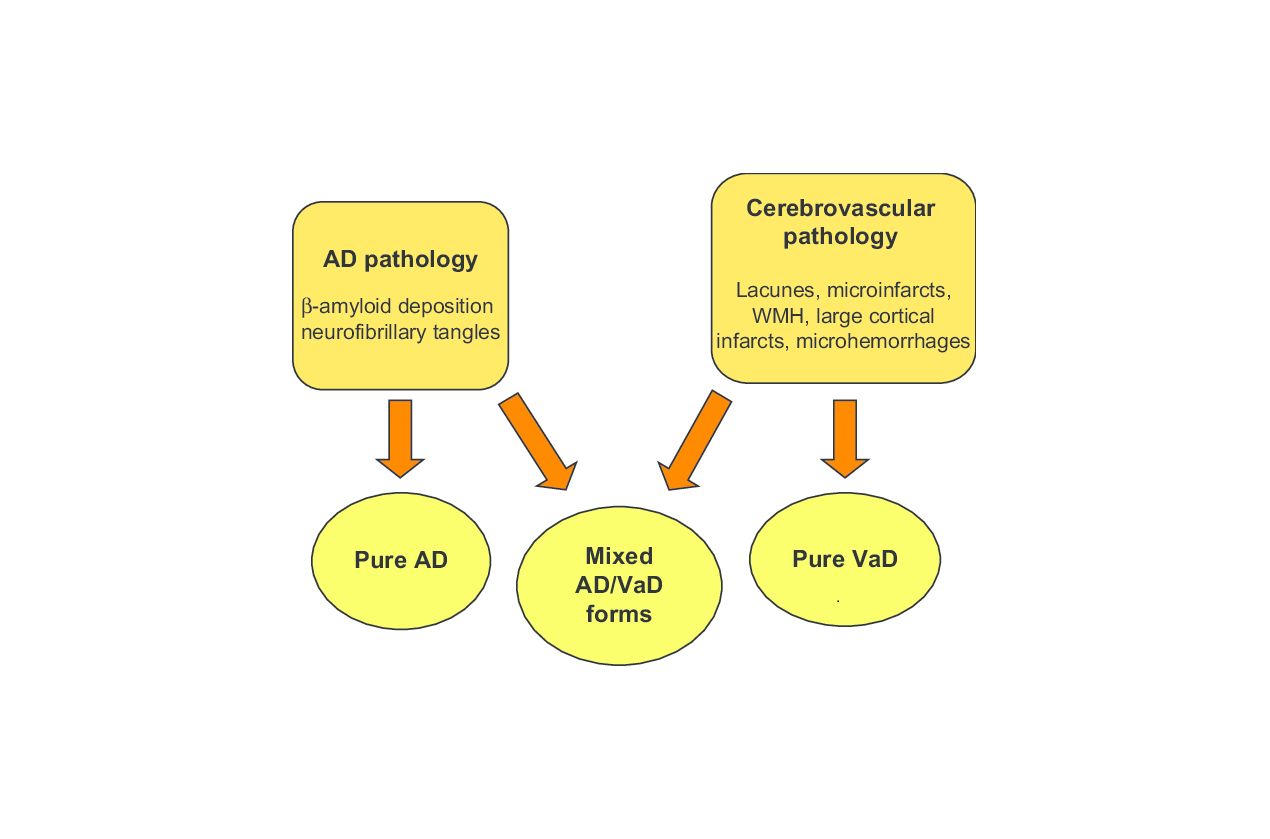
Frontotemporal dementia
(including Pick’s disease)
Frontotemporal dementia (including Pick’s disease) results from damage to the front and side parts of the brain. Clumps of abnormal proteins form inside brain cells, causing them to die. At first, changes in personality and behaviour may be the most obvious signs. Depending on which areas of the brain are damaged, the person may have difficulties with fluent speech or forget the meaning of words. The symptoms of these types of dementia are often different in the early stages but become more similar in the later stages. This is because more of the brain is damaged as the different diseases progress. In the later stages of dementia, the person will need more and more support to carry out everyday tasks. However, many people with dementia live well for years after their diagnosis. Information, advice and support are available for the person and their carer to help them live well with dementia

In behavioural variant Frontotemporal dementia, the areas of the brain affected early on are in the frontal lobes. For example, damage to the upper middle surfaces of the frontal cortex is linked to becoming withdrawn and losing motivation. Damage to the front under-surface is linked to losing inhibitions, meaning the person might make inappropriate comments. Damage to the frontal lobes may also mean the person repeats the same word, phrase or action over and over again. It is important to appreciate that none of these things are done by choice
In semantic dementia, the front of the left temporal lobe, dealing with verbal semantic memory, is damaged first. So the person may have fluent speech but struggle to find the right word for something, or they may ask what a familiar word (e.g. 'knife') means. Damage to the right temporal lobe leads to problems recognising faces and objects
Common Symptoms
- Say and do things at the wrong time and place
- Lack sympathy or empathy
- Lose interest in things or people
- Display repetitive, compulsive behaviours
- Have changes in language such as making errors in grammar, slow, hesitant speech or difficulty finding the right words
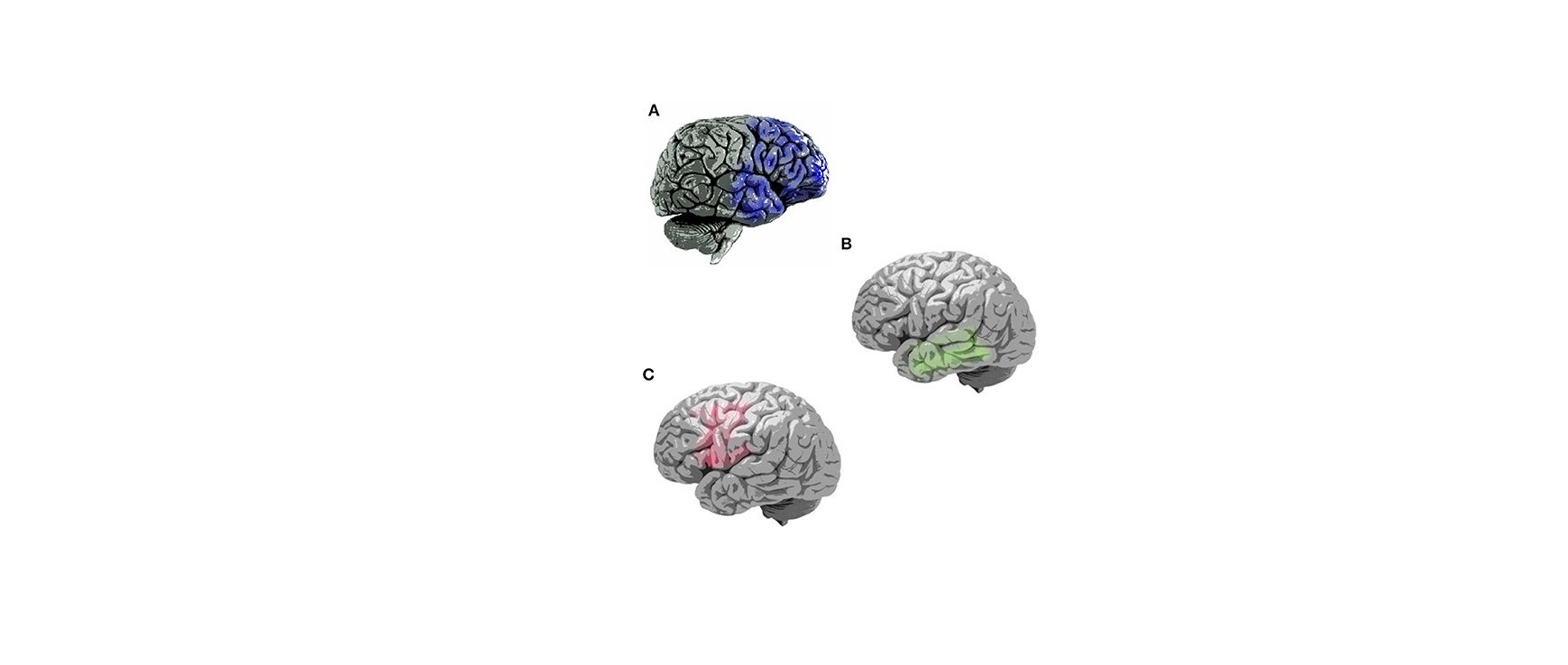
Rarer types of dementia
Rarer types of dementia only account for about 5% of all dementia.
They tend to be more common among younger people with dementia (under the age of 65)
Corticobasal syndrome (CBS)
CBS is a rare condition in which parts of the brain become damaged and begin to shrink. CBS is sometimes referred to as ‘corticobasal degeneration’ or CBD. The terms CBS and CBD describe the same condition. The symptoms of CBS and CBD include problems with movement, language, memory and visual perception i.e. how the brain interprets information that comes from the eyes. CBS usually affects people aged between 60 and 80. CBS is often diagnosed by a doctor who specialises in disorders of movement e.g. a neurologist, rather than a health professional at a memory service who specialises in dementia
Common Symptoms
- Being stiff or slow
- Having jerky movements
- Problems with balance
- Problems with coordination, usually on one side of the body only
- Memory issues
- Difficulty maintaining concentration
- Issues making decisions
Progressive Supranuclear Palsy (PSP)
PSP is a condition that causes problems with movement as well as dementia. It mainly affects people aged over 60. The word 'supranuclear' refers to the parts of the brain just above the nerve cells that control eye movement. In PSP these areas become damaged. 'Palsy' means a person is unable to move a part of their body, in PSP their eyes are affected meaning;
- They may find it difficult to move their eyes in the direction they want to.
- They have double or blurred vision as their eyes may not co-ordinate with each other
- Their eyelids may not open normally and can become stuck shut
Common Symptoms
- Issues Concentrating
- Difficulty with decision making
- Difficulty problem solving
- Problems with organising
- Struggling with planning
- Difficulty with visuospatial skills, affecting their concept of distance and arranged objects
- Difficulty with reading words / letters
- Stutter or have difficulty speaking fluently
- Using the wrong words in a sentence
- Becoming apathetic, stubborn or impulsive
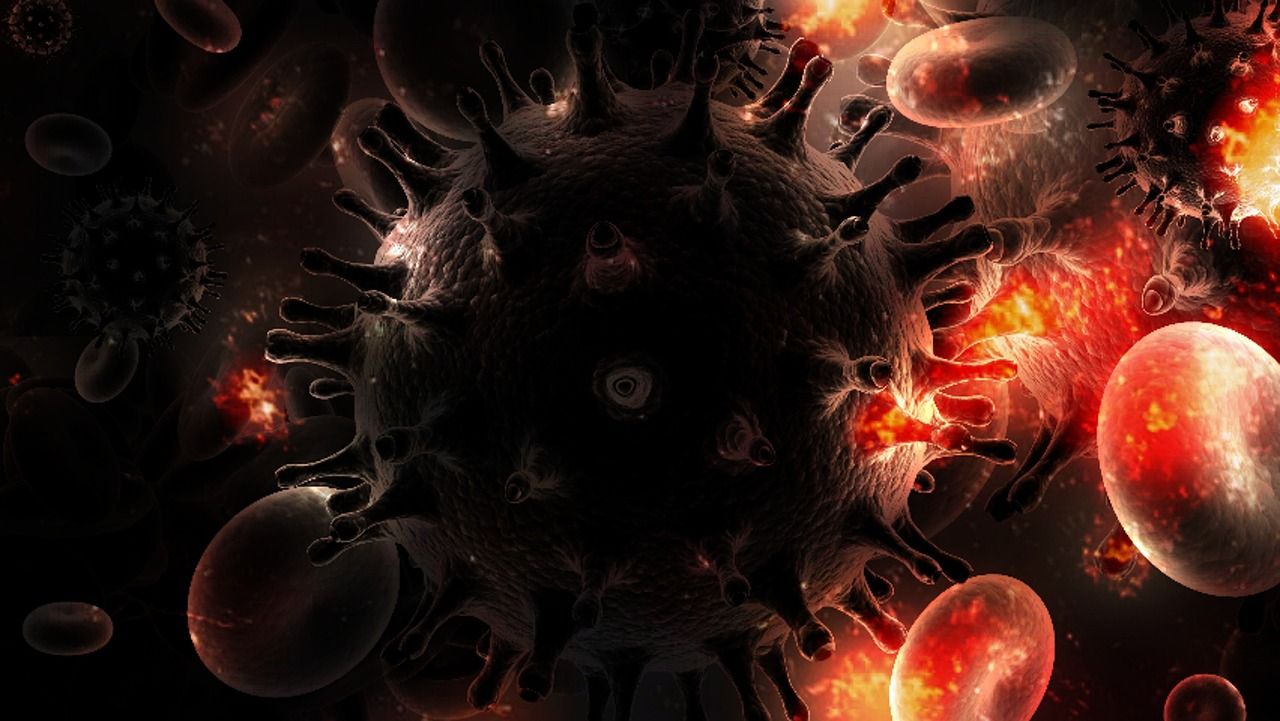
HIV - associated neurocognitive disorder (HAND)
The majority of people in the UK who are living with human immunodeficiency virus (HIV) can take very effective drugs called 'combination antiretroviral therapy' These drugs keep the levels of the virus in the person’s system down to very low levels. Before this drug therapy was available, some people with HIV would go on to develop dementia, but this is now uncommon. However, many people who have HIV do still experience a milder type of cognitive impairment, such as problems with their memory and thinking. This is called HIV-associated neurocognitive disorder (HAND)
Symptoms usually remain stable over time, rather than progressing to dementia. The person may also have problems with their mood, such as depression or irritability
Following a diagnosis of HIV it is advisable to have cognitive and emotional wellbeing assessments within three months, with re-assessments at least once a year
Common Symptoms
- Issues Concentrating
- Difficulty with descision making
- Issues with memory
- Problems with organising
- Struggling with planning
Niemann-Pick disease type C
Niemann-Pick disease type C is one of a group of rare inherited disorders. It is not related to frontotemporal dementia, which is also sometimes called Pick's disease. It mainly affects school-age children but can occur at any time, from early infancy to adulthood. It is caused by an inherited inability of the body to deal with cholesterol and other fats, causing them to accumulate in cells, including those in the brain. This can lead to progressive loss of movement and difficulties with walking and swallowing
People who first show symptoms in late adolescence or early adulthood are more likely to experience dementia as part of the disease
Common Symptoms
- Confusion
- Memory Problems
- Difficulties with concentrating and learning
Creutzfeldt-Jakob disease (CJD)
Creutzfeldt-Jakob disease (CJD) is caused by an abnormally shaped protein, called a prion, infecting the brain. It is not known what causes these proteins to build up in the brain, but in most cases CJD is not thought to be inherited or transmitted from person to person
CJD affects about 1 in every million people each year. The most common type is sporadic CJD which usually affects people aged over 40. If a person has sporadic CJD, their symptoms of dementia usually progress very quickly, within just a few weeks or months
As the disease progresses the person is unlikely to be aware of their surroundings or disabilities. There is currently no cure for CJD, although some of the physical symptoms can be managed better with drugs, such as clonazepam for stiff limbs and seizures
Another form of CJD called ‘new variant CJD’ was identified more recently. It is thought that it may be caused by eating meat from cattle that have bovine spongiform encephalopathy (BSE). This is why new variant CJD is also known as ‘mad cow disease’. In the past, it caused a small number of people to develop new variant CJD. It is now very rare for a person in the UK to develop this
Common Symptoms
- Memory Loss
- Mood changes
- Apathy
- Clumsy and confused
- Unsteady when walking
- Slow or slurred speech
- Jerky Movements
- Shakiness
- Stiff limbs
- Incontinence
- Loss of ability to move or speak

Mild Cognitive Impairment
Mild cognitive impairment (MCI) is a condition in which someone has minor problems with memory or thinking. In MCI these difficulties are worse than you would expect for a healthy person of their age. However, as the symptoms are not severe enough to interfere significantly with daily life, they are not defined as dementia
The individual may notice they are experiencing difficulties with memory or thinking or it may be noticed by those who know them. MCI may cause someone to experience minor problems or need a little help with more demanding daily tasks for example paying bills, managing medication or driving. However, it does not cause major problems with everyday living and if there is a significant impact on everyday activities, this may suggest dementia
If the person with MCI has taken tests of mental abilities, their problems will also be shown by a low test score or by falling test scores over time. Any decline in mental abilities is often caused by an underlying illness
It is estimated that between 5 and 20% of people aged over 65 have MCI. Although it is not a type of dementia, a person with MCI is more likely to go on to develop dementia. A diagnosis of MCI can be used as an opportunity to make lifestyle changes for the better. There is a lot that someone can do to help reduce their chances of MCI progressing to dementia.
Common Symptoms
- Forgetting recent events or repeating the same question
- Struggling with thinking things through e.g. reasoning, planning or problem-solving - for example, struggling with thinking things through
- Being easily distracted
- Taking much longer than usual to find the right word for something
- Struggling to interpret an object in three dimensions, judge distances or navigate stairs
Potential impact of other diseases
Some people with Parkinson’s disease or Huntington’s disease develop dementia as the illness gets worse
People with Down’s syndrome are also at a particular risk of developing Alzheimer’s disease as they get older